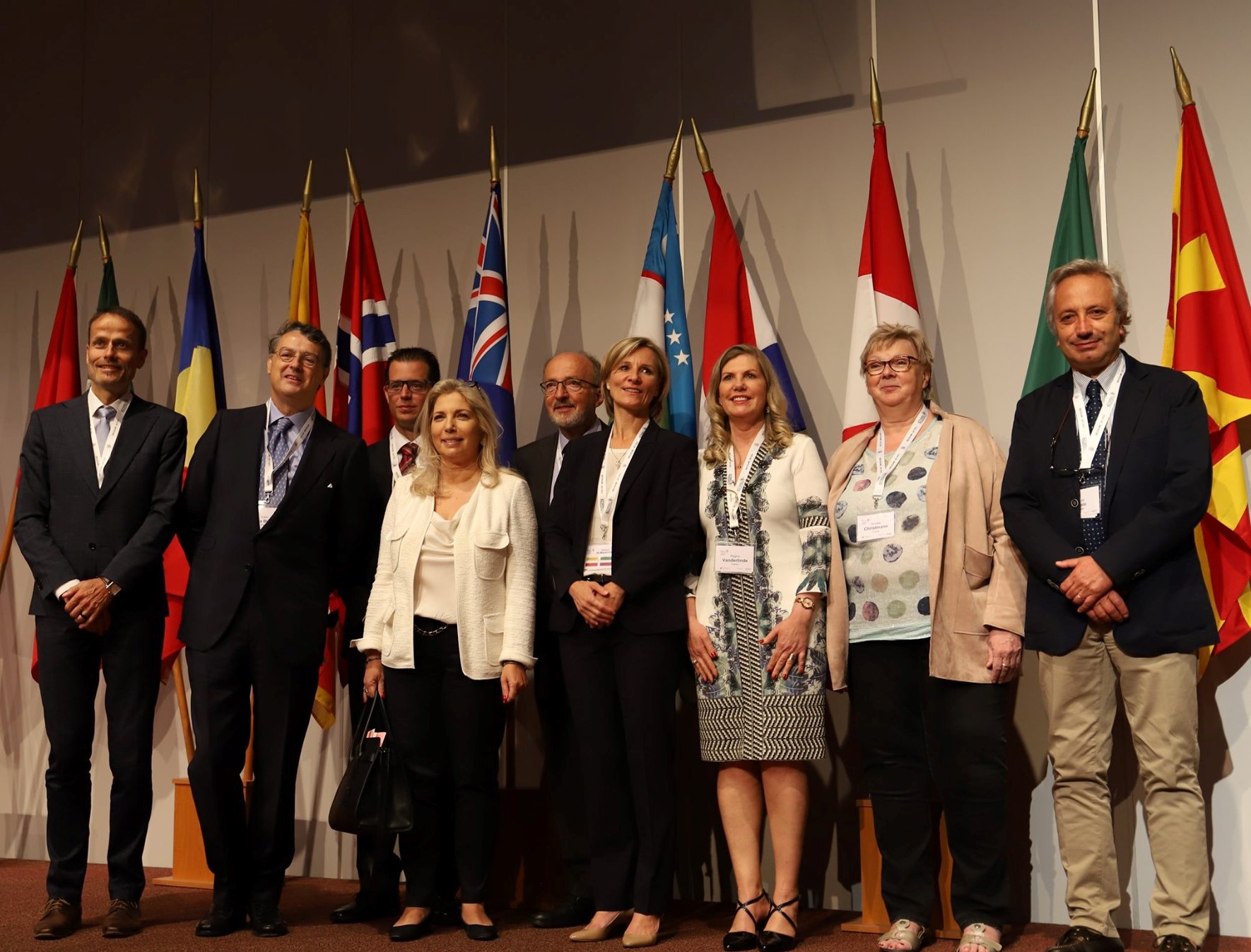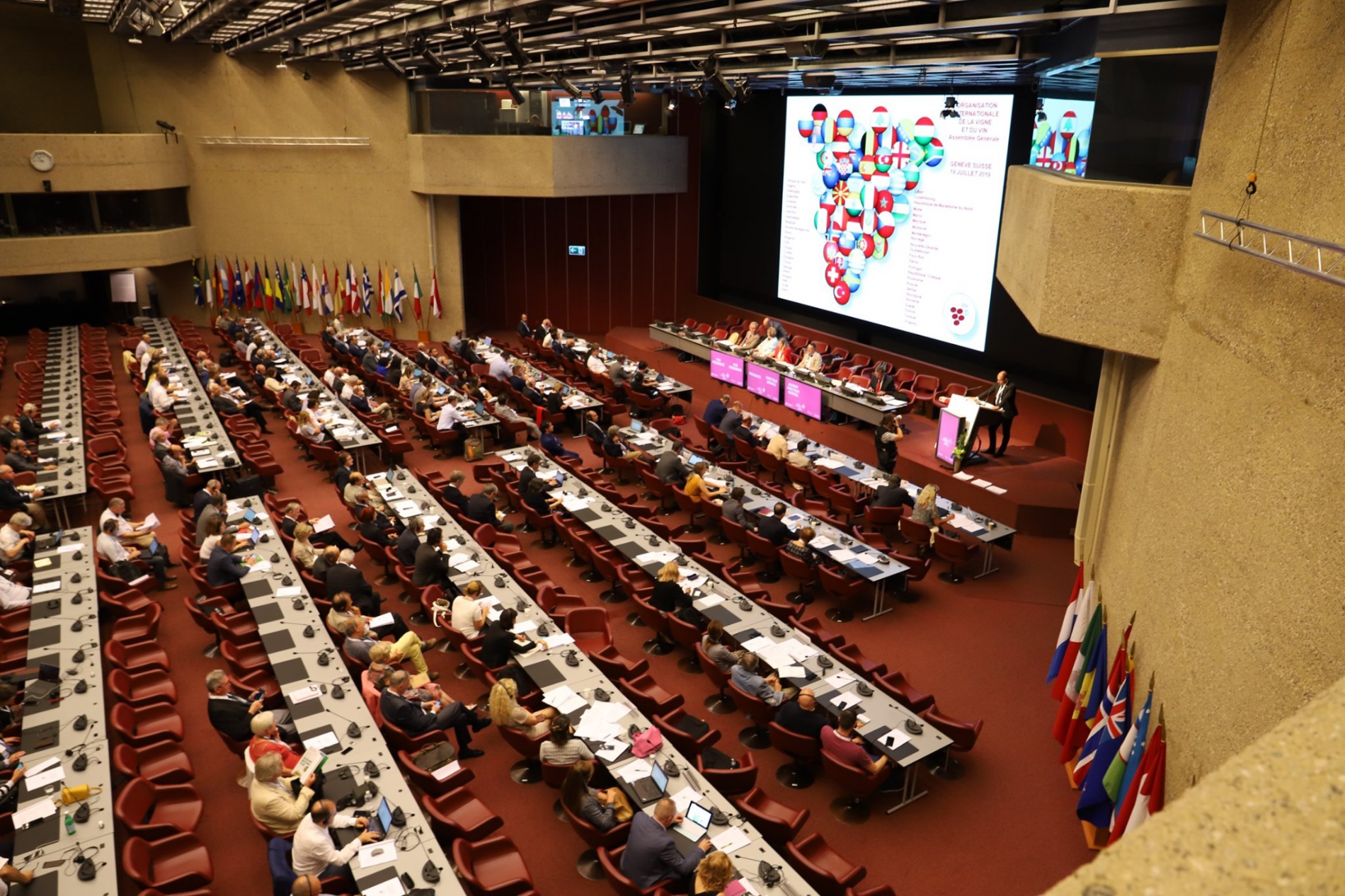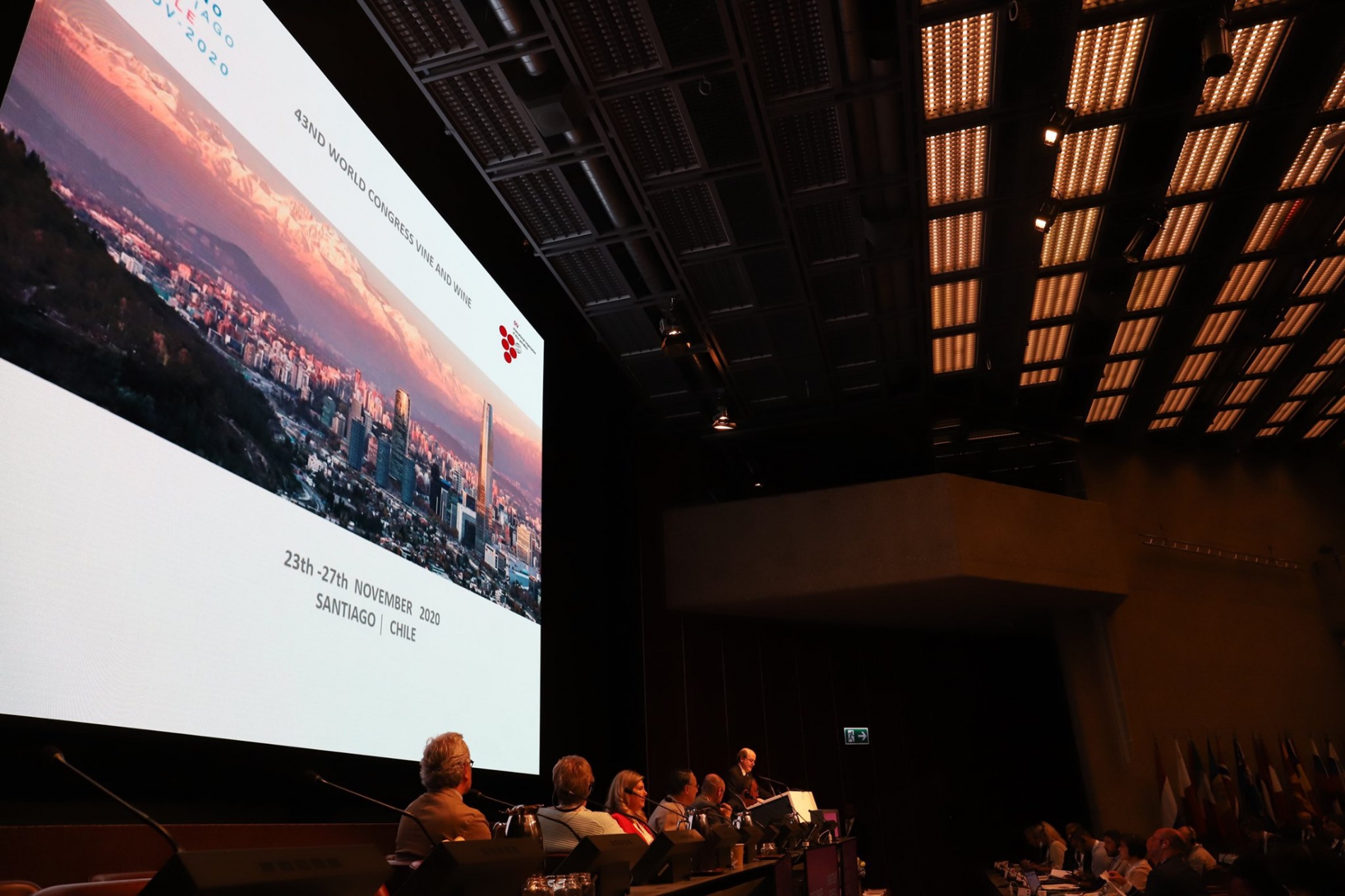Thanks to the work of Switzerland’s Organising Committee and Scientific Committee, presided respectively by Simone de Montmollin and François Murisier, Geneva became the global capital of vitiviniculture from 15 to 19 July 2019.
A member of the OIV since 1934, Switzerland had previously hosted the World Congress of Vine and Wine in 1955 and in 1977.
The 17th General Assembly of the OIV concluded the week, with 18 new resolutions adopted.

In the photo: Adrian Aebi, Assistant Director of the Swiss Federal Office for Agriculture (FOAG); Pau Roca, Director General of the OIV; Marco Romano, President of the Swiss Interprofessional Organisation of Vine and Wine (IVVS); Nathalie Fontanet, State Councillor for the Canton of Geneva; François Murisier, President of the Scientific Committee for the 42nd OIV Congress; Simone de Montmollin, President of the Organising Committee for the 42nd OIV Congress; Regina Vanderlinde, President of the OIV; Monika Christmann, Vice-President of the OIV; Luigi Moio, 2nd Vice-President (and Scientific Vice-President) of the OIV.
Environmental expectations
With the central theme of ‘Preservation and innovation: expectations at the environmental, economic and social level’, the discussions of the OIV Congress dealt with the following issues: climate change, to which vines are highly sensitive; value promotion of products (terroirs, origin, sanitary and food-grade quality of vine products, sugar content, allergens, etc.); and vine protection, with the highly topical question of input management.
On the opening day of the Congress, the latter theme was also the object of a public conference entitled ‘A reasoned approach to inputs: scientific contributions and consumer perception’.
The President of the OIV, Regina Vanderlinde, highlighted the excellent quality of the 348 technical and scientific presentations – some of which came from countries such as Japan or even Nepal.
The Director General of the OIV, Pau Roca, who presented a report on the world vitivinicultural situation at the opening ceremony, praised Switzerland’s organisation of this remarkable Congress, which was the fourth biggest in terms of presentations in the last 10 years.
Papers that have received author consent for publication will be available on the EDP Sciences Web of Conferences website in September.
As part of the Organisation’s sustainable approach, this 42nd Congress was the first ‘paper-free’ OIV Congress. It was also the first time that all of the information regarding the events and scientific work presented was available for consultation via an app.
The new OIV resolutions
The 17th General Assembly of the OIV concluded the week of scientific work with the adoption of 18 new resolutions.

With regard to climate change – a major concern for the sector – it is worth highlighting Resolution OIV-VITI 564B-2019, which defines polyclonal selection, as well as an OIV protocol for the protection and conservation of the intravarietal diversity and the polyclonal selection of vines for grape varieties with wide genetic variability.
Consumer expectations and the reduction of the use of SO2 – issues also at the heart of debate within the sector – are the object of Resolution OIV-OENO 594A-2019. This Resolution establishes an innovative practice with the objectives, among others, of reducing the microbial loads of indigenous microorganisms (especially yeasts), and of reducing SO2 levels used in winemaking.
A summary of all of the resolutions may be consulted here. The full texts of the resolutions adopted will shortly be published on the OIV website.
The OIV Assembly also marked the passing of the baton from Switzerland to Chile, the host country for the future 43rd World Congress of Vine and Wine, to be held in Santiago from 23 to 27 November 2020.
